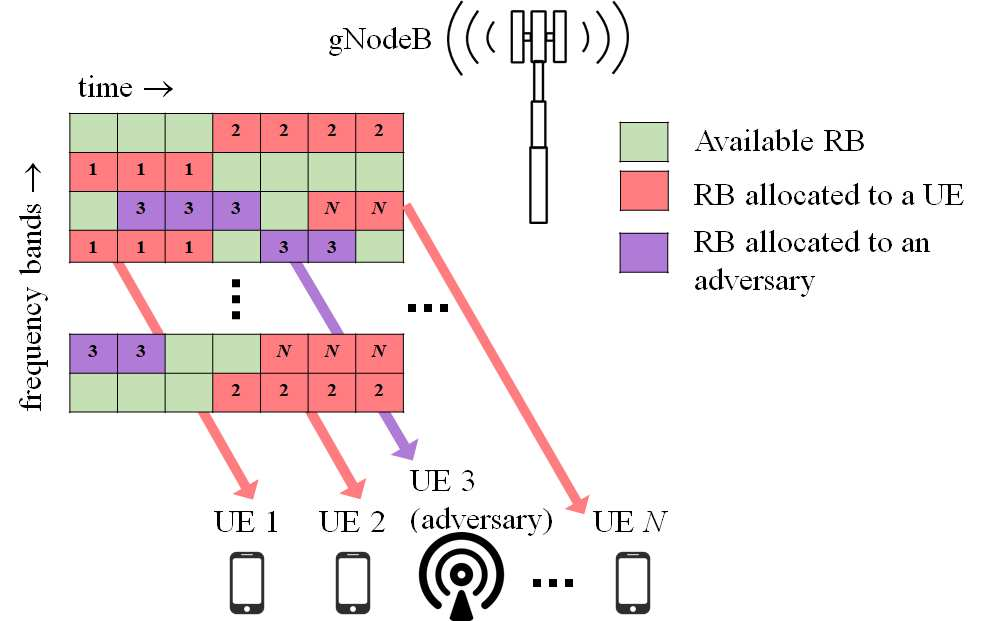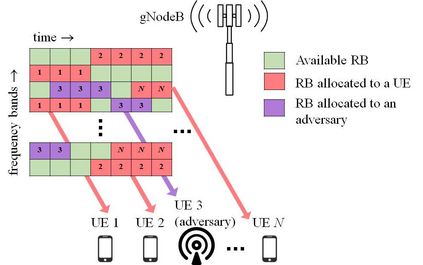Network slicing manages network resources as virtual resource blocks (RBs) for the 5G Radio Access Network (RAN). Each communication request comes with quality of experience (QoE) requirements such as throughput and latency/deadline, which can be met by assigning RBs, communication power, and processing power to the request. For a completed request, the achieved reward is measured by the weight (priority) of this request. Then, the reward is maximized over time by allocating resources, e.g., with reinforcement learning (RL). In this paper, we introduce a novel flooding attack on 5G network slicing, where an adversary generates fake network slicing requests to consume the 5G RAN resources that would be otherwise available to real requests. The adversary observes the spectrum and builds a surrogate model on the network slicing algorithm through RL that decides on how to craft fake requests to minimize the reward of real requests over time. We show that the portion of the reward achieved by real requests may be much less than the reward that would be achieved when there was no attack. We also show that this flooding attack is more effective than other benchmark attacks such as random fake requests and fake requests with the minimum resource requirement (lowest QoE requirement). Fake requests may be detected due to their fixed weight. As an attack enhancement, we present schemes to randomize weights of fake requests and show that it is still possible to reduce the reward of real requests while maintaining the balance on weight distributions.
翻译:在5G无线电接入网络(RAN)的虚拟资源库(RBS)中,网络剪切网络资源管理网络资源。每份通信请求都包含高质量的经验要求,如输液量和悬浮/死线等,这些要求可以通过分配RB、通信力量和对请求的处理权力来满足。对于已完成的请求,通过这项请求的权重(优先事项)来衡量实现的奖励。然后,通过分配资源,例如强化学习(RL),将奖励最大化。在本文中,我们对5G网络断层进行新的洪水袭击,对手产生假网络断层要求,要求消耗5GRAN资源,否则可以满足实际请求。对手通过RL观察频谱并在网络剪切算算算算算算算算法上一个代名模型,决定如何伪造请求,以尽量减少对实际请求的奖励。我们显示,通过实际的奖励要求可能比在没有攻击时得到的奖励要少得多。我们还显示,这次洪水袭击的权重要求比其他要求更有效。我们所测算的资源重量要求更精确。





